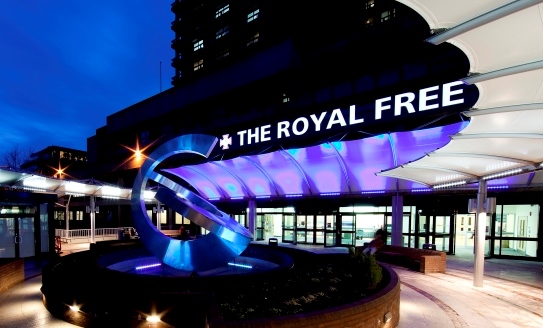
Updated 9 May 2023
New visiting guidelines are being introduced at the Royal Free Hospital and Barnet Hospital from today.
Visitors will no longer have to complete the COVID-19 screening form on each visit and although we would encourage visitors to take a lateral flow test before attending hospital, this is no longer a mandatory requirement.
Please do not attend any of our hospitals if you have any symptoms of COVID-19, cold or flu or feel unwell.
Patients are permitted one hour of visiting per day and during this hour there can be either one visitor or two visitors at the same time. Patients cannot have two people visiting at different times of the day.
Patients can have different visitors each day, it is no longer a requirement for patients to have nominated visitors.
Visitors will need to book their visiting appointments online in advance. If there are two visitors, the second name must be included in the booking form and both visitors should arrive together. Click here to book your appointment.
The visitor contract has been amended to incorporate these changes. Visitors will need to sign this when they attend hospital.
Visitors, patients and members of staff are no longer required to wear a mask in public, clinical and non-clinical areas across the Royal Free London, except when specifically indicated.
A clinical area refers to a department, a ward, a waiting area, or clinic — please continue to wear surgical face masks in these areas.
Please continue to take precautions based on your situation and anyone is welcome to wear a mask if they feel safer doing so.
Read more guidance on mask waring and infection, prevention control.
at all times when inside the hospital and should use hand gels or wash hands frequently throughout their visit.
Compassionate visiting remains for adult inpatients which means that visiting can occur daily if the patient meets any of the following criteria:
- They are nearing the end of their life
- They have a mental health issue, dementia, a learning disability or autism
- Where the attendance of a key contact will benefit a patient's clinical condition or wellbeing especially for distressed patients
 Translate
Translate